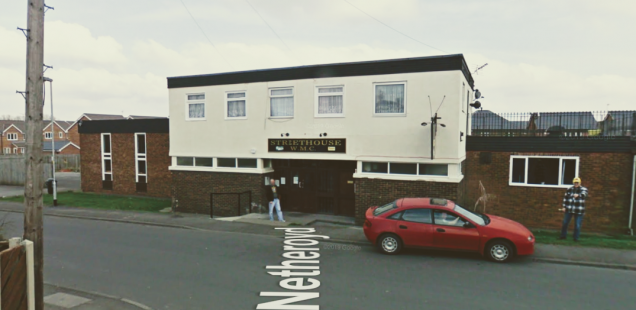
Due Diligence: The Mass Effect Andromeda Trilogy, Part VI: Colony Wars / Was It All Worth It?
Leigh Harrison hits the pub.
The old man breathes in with all the heft of his years, filling his lungs and then his belly. Engorged, he holds himself for a second before letting everything back out in one long, languorous ex–ha–le. He’s asleep.
A gentle snore accompanies the rising and falling of his gut. A serenade for the crumbles that dance across his cardigan with each new heave. The man’s young companions stretch around the table before him, too distracted by themselves to notice him. He’s asleep at the club.
Later, a friend’s salutation shouted across the room or the laughter from a hearty joke will rouse him. He’ll smile and pretend to have heard what of course he did not. After a sip of his drink and a smile at someone—anyone—across the table, he’ll sink back into his chair. He’s asleep at the club again.
I’m from the North of England, and a sleeping old man isn’t an uncommon sight in a working men’s club. For those unfamiliar, a WMC is a pub of sorts, though one run not for profit but community. Bevvies are cheap and sold at cost thanks to the Club and Institute Union’s bargaining power, with donations largely sustaining clubs themselves. They host all sorts of good, honest entertainment: cabaret, comedy, raffles (meat and money, mainly), and Frank Sinatra tribute acts.
WMCs are welcoming and unpretentious fare. And yet, like many many aspects of working class heritage, they are looked down upon by the higher echelons of society who see them as rundown, scruffy relics. As the saying goes: it’s grim up north. An old man snoozing in’t club of a Wensd’y afternoon is nout but scum; spat aht’t mine in ‘85 an’ left to wander Yorkshire’s market tahns while chuggin’ Kestrel Super an’ shahtin’ at passin’ caravans. Working class people aren’t allowed to get drunk because they aren’t allowed to have fun.
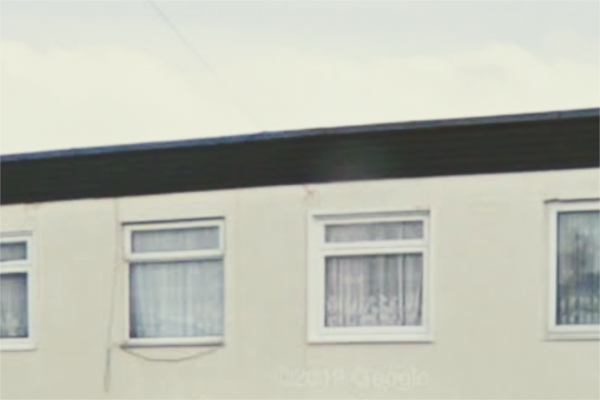
I regrettably live in London now, where its version of a WMC is the gentlemen’s club. These are found in the wealthy St James’s district and admit only the gentlest of working men. Once inside, these paragons of high-ish society enjoy posh versions of club standards. Only this time they take place in double height, wood paneled drawing rooms—and a lot of the fun’s been boiled off. So, instead of snooker, you get billiards. Instead of a meat raffle and pork pie supper, you have a sit down four course meal. And instead of a bloke on a keyboard doing ABBA covers, you have your mate’s drunk godfather sloppily fingering Rachmaninoff. I know which I’d rather be in the crowd for.
During my year or so—and only semi-consensual—dalliance with “Clubland”, what I found especially interesting was the superficiality of the whole thing. At a WMC, you might only nod at Terry and ask how Diane’s doing, but you do so because you care. Your dad went to school with Diane and her sister Kay, and your grandad knocked about with Arthur—Terry’s dad—back in the early ‘30s, before the whole family moved away to Durham for 20-odd years. That nod is community. Contrast that with Clubland, where Sabastian only talks to Anthony because his dad went to Eaton at the same time as former Prime Minister David Cameron (though admittedly he was two years his junior and barely spoke to him).
In this setting, an old boy falling asleep while it’s still light out is perfectly appropriate. He had a high pressure job in the City for forty-three years and managed funds bigger than the GDP of several island nations—combined. Who are you to tell him he can’t drink seven brandies on a Tuesday? You state school fucking imbecile. You twat. Fuck off. Get him out of there. Have you called the desk? Raphael, have you called the fucking desk?! Well fucking do it! Tell them to get this Harrison chap out of here. Why? Do they need a reason? Oh, they do? Okay. Because he’s a twat. A twat who shouldn’t be here and who’s asking questions. We set the tone. This is Clubland. We decide.
I visited Clubland six or seven times and always saw a drunk old man asleep in his chair. To be clear: I have nothing at all against this. I have a nap almost every day now, and I’m barely 30. It’s just that the differences between a working men’s club and a gentlemen’s club are so stark and stab so completely to the heart of issues of class in Britain that it’s too hard to pass up. Class is power and power insulates us from so much—the same rules don’t have to apply.

Another mainstay of Clubland—and another obvious signifier of the working/gentle men divide—is the regular eulogising about the British Empire. Working men, in my experience, never burst into conversation about the Empire. It’s just not something that really comes up between rugby fixtures and working out who’s getting the next round in.
But posh people (and people playing at being posh) fucking love talking about how great the Empire was. Jesus wept. The two things that define a gentleman in the UK is his hatred of the poor and an unflinching belief in the moral sanctity of the Empire. Because the Empire, you see, helped Britain spread its knowledge and values around the world for the betterment of others. I shit you not.
Clubland revisionists would tell me “Leigh, we brought infrastructure and railways and really good schools to these colonies. We gave them cheese sandwiches, Branston pickle, and Guinness. We did good!” And I’d always point to things like successive famines, massive population displacement, or, I don’t know, actual proper slavery. Colonialism is never good. I knew that when I was eleven.
Unfortunately, like one in three conversations at a gentlemen’s club, Mass Effect: Andromeda is all about colonialism. It’s a story of the Andromeda Initiative, a few thousand people escaping the Milky Way under threat of persecution, in search of a new home in the stars. They’re not looking to set up home on a single island, somewhere off to the side on a deserted planet. Their plan all along is to travel lightyears to settle an entire galaxy. I think the game knows this conceit is somewhat shady, so does its damndest to sanitize it to the point of irrelevance. And by that I mean just kinda ignore it altogether.
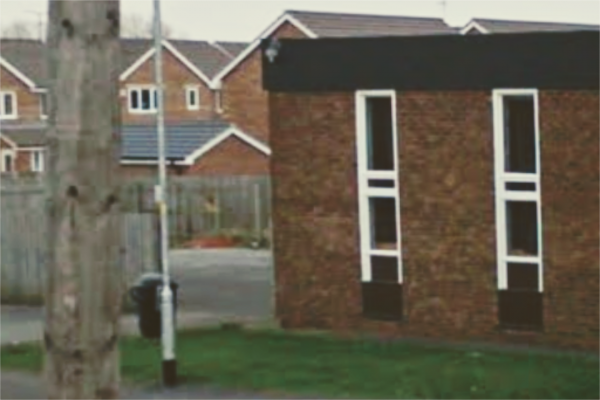
Early in the story, I meet the Angara, seemingly the only species indigenous to Andromeda. They once inhabited planets across the galaxy but now have been pushed back to a single home city. Dealing with the invading, super fascistic Kett and the Scourge—a sort of space ivy that causes planet-wide environmental collapse—has taken its toll. In the Angara’s weakened state I only have to do them a couple of favors—take the bins out, vacuum—before they give me their blessing to colonize their former homes. “Take what you want, lads. It’s not like we can do anything with it.”
What Dia Lacina wrote about Shadow of the Tomb Raider is 100% applicable here. “This isn’t a game that creates space for its indigenous characters as anything other than props, people who desperately need help, people to be corrected to show how Lara is the smartest person in the room.” We are told the Angara are far more technologically advanced than the Initiative and that their civilization spans millennia. And yet for plot reasons, they are entirely impotent against the Kett threat, seemingly unable to raise more than a few planetside guerilla raids in the face of armadas blocking out their skies.
There’s one quest where Ryder, my wisecracking ginger protagonist, is asked to recover Angaran artifacts because they are incapable of doing it themselves. Human exiles and Krogan separatists have founded entire cities, with little more than scavenged parts and stolen prefabs, in a handful of years since the Initiative entered the galaxy and fractured along political lines. Yet the indigenous inhabitants of Andromeda are so whipped they can’t spare a couple of archeologists to go hunting for some buried helmets? It’s such a regressive way to approach the Angara, and all to make me feel like I’m helping these people out as opposed to burying them.
The Angara are given zero agency because that way, I’m free to fly around the galaxy and plant my flag. If they don’t have a problem with it—even going as far as to condone and encourage it—then the game doesn’t have to ask me to think too hard about what it means to be a coloniser. As I found settlements, mine resources, and terraform, I see remnants of the Angara’s past. A research station on an inhospitable planet. A satellite monitoring in close orbit. The remains of a long-forgotten transport, ensnared by the Scourge. A fallen people. They’re as powerless against my need to survive as they are the Kett. I mean, come on.
The Andromeda Initiative will sweep across the galaxy, settling territories and securing resources until it has enough to be sustainable. And then it will expand. The Angara, as written, are mere observers to this. They watch on, outmatched and outgunned, as a few ships of interlopers swarm their home and take what they want, witnessing and disregarding thousands of years of history. And the Angara are grateful. Because they are weak.
They deserve so, so much better.
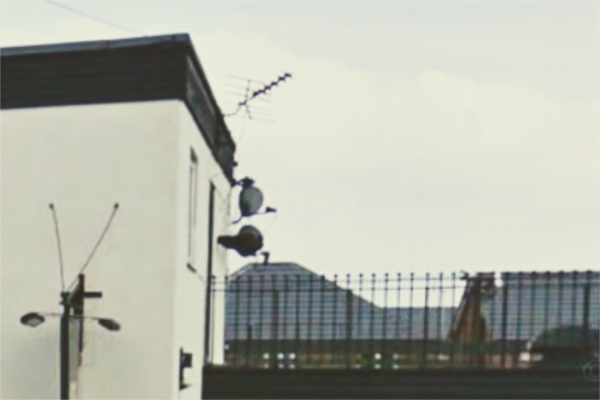
Is there anything to separate the Initiative from the Kett? Well, Ryder doesn’t shoot entire species full of goo to transform them into carapaced zombie armies—that’s genocide, kids!—so there’s that. But otherwise the two are very similar. Both settle planets. Both terraform, mine and build. Both, ultimately, have expansionist ideals. The big difference is one of perspective. I am the Initiative, while the Kett are the bad guys.
Beyond this superficial distinction, I learn nothing about the Kett, their motivations, or guiding doctrines. They’re an ‘80s cartoon villain: all cackle and lust for power without any real justification. They are so thin that I was sure there’d be a reveal at some point to recontextualize them; a revelation that they too were refugees, perhaps fleeing the Scourge, and that their cruelty was born out of fear rather than malice. But no. They are one dimensional conquerors who do bad stuff because they are bad lads. And I am the hero who does the same bad stuff but gets away with it, because my actions are portrayed wholly uncritically.
This leaves us with a drunk old man asleep somewhere in the United Kingdom of Great Britain and Northern Ireland. As he sleeps, he dreams; the most fantastic dreams of adventure out in the stars. Images filter through his mind as fast as he can imagine them into being. A noble space financier sharing his knowledge of Inverse ETFs and Equity-Indexed Annuities with a new galaxy. A rampaging admiral, fueled by hate and Yamaha-led renditions of ‘70s pop staples, intent on building an empire of bones. The dreamer is hero and villain. Initiative and Kett.
A sudden noise pulls him back into the opulent dining room. Paul says it’s time for coffee. The drunk old man pretends not to hear and immediately shuts his eyes again. A fierce gun battle rages. Lasers bounce around the cave illuminating every crevice with bursts of color. Blues, green, and yellows mix with deep crimson reds. Blood? Yes, blood. But whose—the deserving or the innocent? Can he even answer that question? He grapples with his morality as the lights intensify, blurring together to create a white so bright it burns his mind. He is awake again. The familiar sights of the games room: the polystyrene tiles of the tobacco-stained ceiling; the row of fifty pence pieces along the top of the snooker table; and widowed Terry, over there in the corner minding his own business.
Terry slowly turns towards the drunk old man, holding his gaze from across the room. Terry’s eyes widen until they bulge almost out of his head—but they do not stop. They grow bigger and bigger until his entire face is inside out. From this glistening mass of sinew and exposed flesh comes a deep, guttural moan. The drunk old man understands its meaning immediately and entirely. He nods at Terry, stands, and makes for the window. Grasping the latch with a trembling hand, the drunk old man slides the pane to one side and reveals an undulating expanse of syrupy, multicolored light. All is quiet as he climbs onto the sill and looks back over his shoulder towards Terry. “This is Clubland. We decide,” he says with a smile, before turning to the gaping void and diving in.
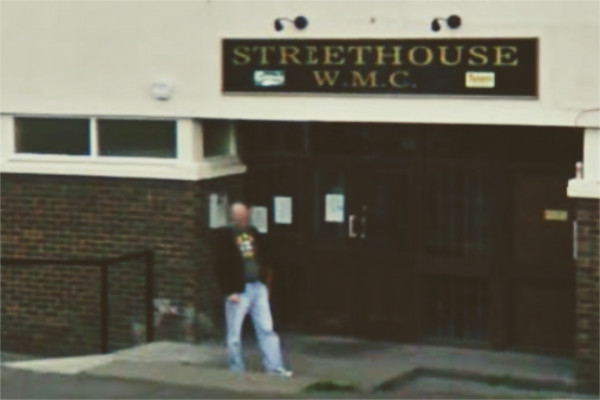
A braver version of Andromeda would have done away with the Kett boogeyman and focused its central conflict on the tension of finding a new home in someone else’s. It would have placed the Angara in a position of relative power and framed the Milky Way refugees as a people who needed to navigate the complex moral question of what it means to be a stranger in a land that is not your own. To create relationships that are symbiotic and fulfilling, where everyone seeks to benefit—or at the very least not come out worse off. But maybe it was wise to shy away from this idealism and seek refuge in a simplified narrative because, in reality, there’s no such thing as mutually beneficial colonialism.
If you asked me today whether it’s worth playing Andromeda, I’d probably have a hard time answering. Its shooting is the best the series has ever had, but it is still a clunky shooter. It has really good roleplaying mechanics, but these are often buried in hours of menu wrangling. Its art direction is often stunning, yet much of its visual execution is bland or even downright ugly. Every aspect is some sort of compromise. Mass Effect: Andromeda isn’t a good Mass Effect game. But it is an interesting videogame.
So, was it all worth it?
I think so, yes.
Leigh Harrison lives in London, and works in communications for a medical charity. He likes canals and rivers a great deal, and spends a lot of his time walking. He occasionally says things about videogames on the Internet, and other things on The Twitter.